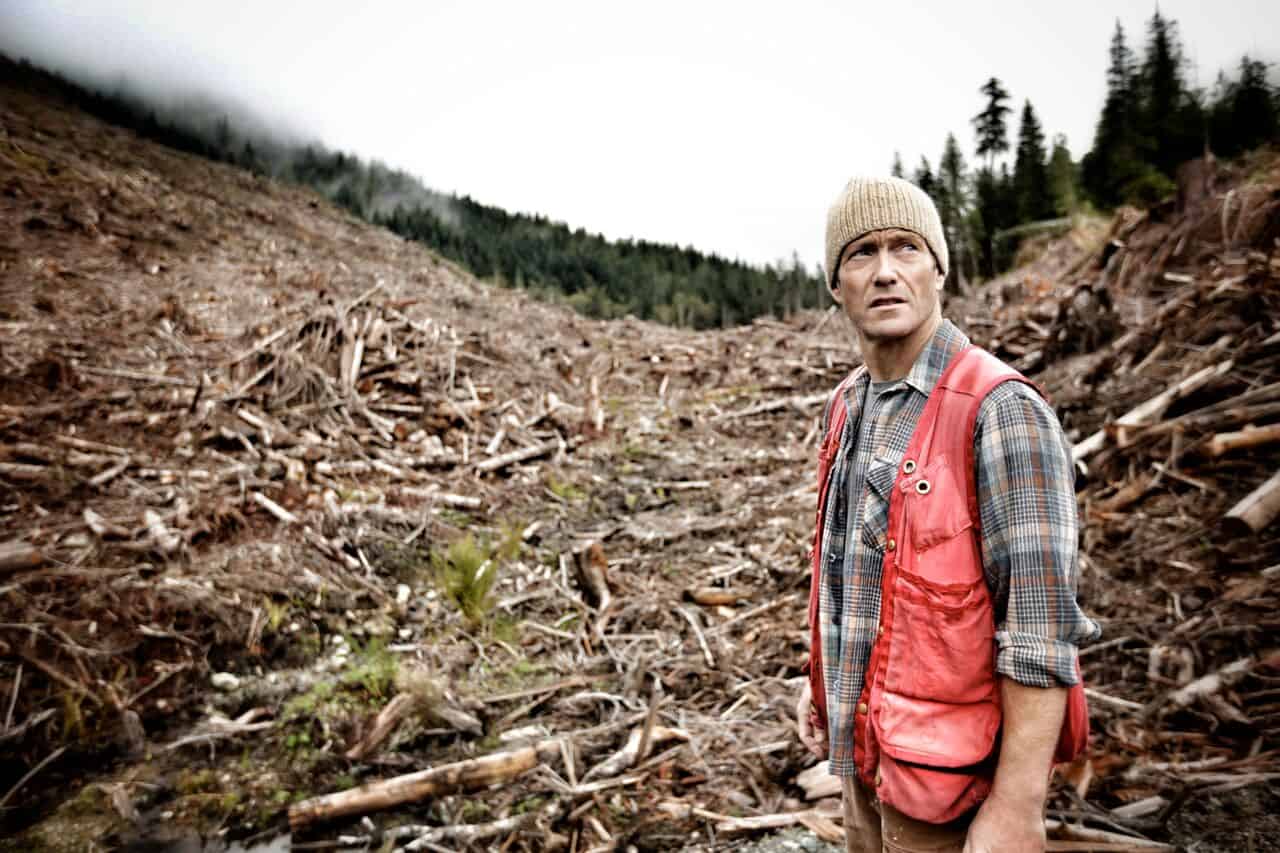Hadwin’s Judgement
Directed by Sasha Snow
Documentaries are one of the veins through which VIFF’s lifeblood flows. Attracting large crowds of socially conscientious viewers, they are usually among the first films to sell out. Unfortunately, given their commercial appeal, many of them begin to mirror each other, turning into dull affairs filled with “talking heads”, bland B-roll, and an easily digestible message to wash it all down.
Based on the acts of Grant Hadwin, as told in John Valiant’s award winning book, The Golden Spruce, the film navigates its way through a compelling story which may not be common knowledge outside of Canada, or even B.C. Hadwin, a logging enginner who explored the vast swathes of B.C. in search of the best logging sites, becomes disillusioned with his role in destroying the countryside. In a miscalculated act of outrage at the harsh logging methods in Haida Gwaii (an archipelago on B.C.’s coast), fells a 300-year-old Golden Spruce, which was a sacred tree to the native Haida.
Hadwin’s Judgement, while not an elevated take on the documentary format in the mode of VIFF 2014’s The Iron Ministry, does have several qualities in its favour. Visually gorgeous, with vibrant photography spanning the forests, mountains, and bodies of water within the interior and coast of British Columbia, it captures natural beauty with more depth and perception than many other docs which try but fail. But pretty photography on its own does not make a film. Especially a documentary.It brings a dramatic element to the story by reenacting Hadwin’s life in the events leading up to his decision. However, it fails to capitalize on that dramatic tension, choosing to let the story unfold in an unhurried disinterest. Featuring talking heads to provide historical and personal background to the reenactment, the film begins to get stuck in a monotonous rut of voiceover, Hardin walking, nature shots, then voiceover. The structure lacks variety even as the voiceover itself spans a wide array of subjects, from Hadwin’s personal life, to Haida Gwaii and its people’s mythologies and culture.
What begins as a beautiful, intriguing documentary slowly fades into dull repetition as lack of innovation in both storytelling and its incorporation of the cinematography deadens its impact as it slides into a futile exercise in didacticism. Critiquing anthropocentrism and petitioning for a more holistic approach to life, such as kincentrism, which sees all things as in relation to one another, the film begins to truly waver. While this is a fine perspective, with a deep, long history and tradition, it is being reduced to rhetorical hyperbole. Instead of exploring and presenting the issue, it is seized upon in a partisan manner
Hadwin’s Judgement may boast beautiful images and an intriguing subject, but it can’t quite harness those elements to elevate itself beyond a lacking format and a message that preaches to the choir.
The Vancouver International Film Festival takes place from September 24 – October 9, 2015. Visit the official website for more information.



